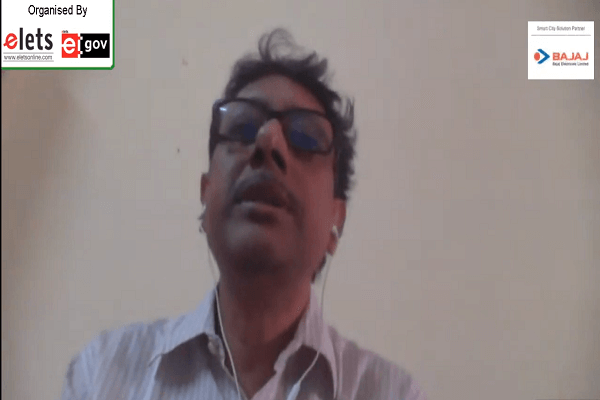
Describing the story of India’s holistic development, Elets Technomedia organised India Transformation Summit from July 10 to July 12. RS Srivastava, Investment Commissioner, Department of Industries, Government of Bihar joined the India Transformation Summit and addressed the session on ‘contributions of state PSUs in transforming India’.
Mr Srivastava commenced his address by announcing that the Government of Bihar has passed an amendment to the Bihar Investment Industrial Policy 2016 on June 29, 2020, wherein a new clause 6.9 has been introduced. It states that the state PSUs will be able to undertake joint ventures (JVs) with private sector players. “This is a bold decision that the government has taken. We are making guidelines for these JVs. All our departments their corporations, PSUs and their authorities have been sounded. They are talking with various private players”, told Mr Srivastava.
Adding on he said, “We are also looking at the latest amendment of DPIIT on June 4, 2020, wherein the JFR has been utilised to push ‘Make in India’. Under this, if any company is manufacturing in India which is not an L1 company will be given 50 percent of the work provided the company is Indian and is working in India.” Similarly, the Department of Industries has moved amendments to the Bihar finance rule. Once this comes, it will open doors for many private companies, he added.

Talking on how the thinking and working model of Bihar changed since independence, Mr Srivastava said, “During initial years of India’s independence, we were having a lot of JVs. However, with time the thinking changed and we discontinued that approach. Today we are in a mode where we are disinvesting from govt companies. However, this is not a retrograde stage. Places where the business is difficult, the government has to step in and build a market. Once the market is operational, the government has to step down and exit. So exit is an important aspect. We are working currently on an exit mode and we are looking for how to exit JVs.”

Calling on other states for helping Bihar with a better exit policy, Mr Srivastava said, “As this is an august forum and since other states have a better experience with industries, it would be great to have bits of advice and insights from the other panellists.”
Speaking on COVID situation in Bihar, Mr Srivastava said, “We received over 25 lakh workers from across India migrating back to Bihar during the lockdown. This was a big challenge for us.” The government had leveraged technology to resolve the issues. The government created a database of the workers and used a matrix provided by the UNDP which has got 65 columns. Under this matrix, a detailed report was carried and the entire data is today available with the labour department, he added.
Also Read: Business as Unusual – How to Lead Differently in the Workplace of the Future
Adding on he said, “Secondly, we came up with the JV policy wherein the state PSUs will be able to enter into JVs leveraging their purchasing power. And, thirdly, we have empowered DMs to set up small clusters in their respective districts. Within these clusters, the DMs will be working with 50-200 workers and providing them plug and play facilities.” The government wanted to have these workers to be employed in Bihar, he added.
Citing one of the significant moves from the Bihar government, he said, “If there is any industry which is willing to come to Bihar we will share 80 percent of the relocation cost of that factory or the working unit.”
Further, he said, “ As far as clearances are concerned, we looked at it very seriously. We have state investment promotion board which works as a single-window system. We have a system of a common application form which has to be filled online. Once, it is done, we even discourage the applicant to reach out to various departments as it is our job. If something is pending then there is a provision of penalty on the officer who kept it pending.” Moreover, there is a system of deemed approval. So, if the approval is not given in 30 days, deemed approval is given. The department has actually given deemed approval in more than six cases, he added.
Be a part of Elets Collaborative Initiatives. Join Us for Upcoming Events and explore business opportunities. Like us on Facebook , connect with us on LinkedIn and follow us on Twitter, Instagram.











